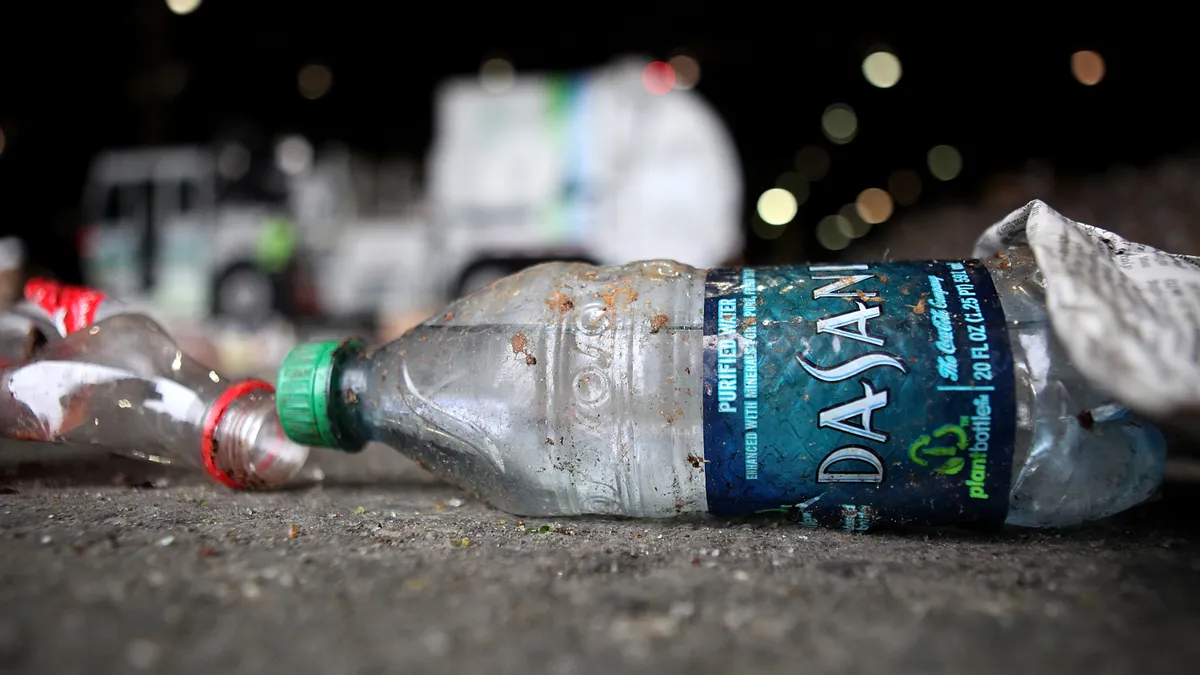One month after one of the biggest corporate tax cuts in years the waste industry is still processing its effects. So far, they see few downsides.
More details can be expected when fourth quarter earnings calls start next month, and multiple companies declined to comment during the quiet period leading up to that, but early signs already indicate that operations of all sizes have a lot to like. Lower corporate and pass-through rates equal more free cash flow. The question now is how those newfound funds will play into existing strategies for hiring, acquisitions and capital expenditures.
Waste Dive reached out to all of the top companies involved and looked to multiple financial analysts for insight on the latest thinking.
Who benefits?
The simple answer to this question is that every company will benefit from the cut. Some will see it sooner than others due to various deduction histories, tax credits and international assets.
Among the large publicly traded companies, Waste Management, Republic Services, Waste Connections and Casella Waste Systems all declined to elaborate ahead of their earnings calls. Advanced Disposal Services didn't provide a direct response to similar requests for comment.
"This is good for garbage."

Michael E. Hoffman
Managing Director, Stifel
The National Waste & Recycling Association, which lobbied for the tax cut, also declined to comment.
Early reaction from analysts provides a slightly more detailed picture.
"Everybody's who's operated as a C Corp is going to benefit," said Michael E. Hoffman, managing director at Stifel. "This is good for garbage."
A Jan. 4 report from Stifel summed up the effects with the headline "Lots More Cash!" and that is especially true for the industry's largest players. In her latest "Business Insights" column for Waste 360, Leone Young cited past comments from Waste Management about an estimated $250-300 million increase in free cash flow and a $180 million reduction in cash taxes for Republic.
In a recent post for Seeking Alpha, a Dutch analyst who writes under the name Veni Vidi Emi made the case that Waste Management may be in the best position of all. Others also pointed to a mid-December dividend increase by the company as a sign of strength even before the tax legislation was finalized.
As noted by both Hoffman and Young, these initial effects won't be felt by Casella or Advanced in the near-term, because they still have net operating losses. Covanta is in a similar position, though like the others expects to be in a good place once that changes.
"Covanta will ultimately pay a lower tax rate when our tax assets expire, and the company should benefit from the territorial tax system on its planned international investments," wrote James Regan, Covanta's director of communications and media relations, via email.
According to Stifel's analysis, this repatriation angle is also expected to benefit Waste Management and Waste Connections. TerraCycle, a much smaller company, views this as a positive too, because it operates in more than 20 countries.
"When you repatriate profits from the foreign subsidiaries into a global company, the tax cut honestly makes it simpler and cleaner," CEO Tom Szaky told Waste Dive in a recent interview.
On the private side, Waste Pro and Wheelabrator declined to comment. Waste Industries and WCA Waste Corporation didn't respond to requests. Recology, because of its employee stock ownership plan and S corporation status, expects taxes "to remain unchanged with this new legislation."
FCC Environmental Services, a U.S. subsidiary of the Spanish giant that has been gaining territory in Florida and Texas, respond with an optimistic outlook.
"It will surely ease new investments, both in equipment and through acquisitions. It will also help us be more competitive and translate those savings to our stakeholders, including cities and employees," wrote CEO Inigo Sanz via email.
What it means for workers
Waste Management made news in early January with the announcement of $2,000 bonuses for 34,000 employees not already on a sales incentive or bonus plan. During an interview with Fox Business that week, CEO Jim Fish said this was mainly about retention and that more bonuses or wage increases could be coming in the future.
"We will continue to spend money on our people," said Fish, who also added that there had been no pushback from shareholders. "I view a well-thought-out investment in our people as being a good investment for shareholders too."
The company confirmed to Waste Dive that those bonuses will be paid in December, though didn't offer any specifics on possible permanent wage increases. As for the other large publicly traded competitors, none have followed suit like dozens have in other industries.
"I view a well-thought-out investment in our people as being a good investment for shareholders too."

Jim Fish
CEO, Waste Management
Hoffman, for one, said he doesn't necessarily expect that they will because this was meant to address a specific challenge for Waste Management.
"This wasn't politics, this was retention," he said.
According to Hoffman, the company's driver retention rate is slightly lower than that of Republic or Waste Connections. While the driver and mechanic shortage has been affecting a wide range of companies — though not FCC, according to Sanz — Waste Management's lower retention rate translates into thousands of additional slots to fill.
That means higher costs related to recruitment, interviewing, training and potential route inefficiencies or service delays. Waste Management's recent experiences in certain markets have shown how disruptive this process can be to operations. In 2016, the company's vice president of talent acquisition told Waste Dive that dealing with the national driver shortage had been her top priority for years.
A one-time cost of $68 million, especially when coupled with the new free cash flow, could easily pay for itself in this area.
Capital expenses and China
Another area to watch will be if or how this affects planned capital spending for equipment upgrades to meet China's new 0.5% contamination standards or other areas of business development.
As noted in Young's column, capital expenditures for the larger companies tend to run around 10% of revenues, and early signs have already shown new investment in optical sorters and automated systems is happening at material recovery facilities. Because the tax bill extends full depreciation on qualified capital spending through 2023, companies will be able to get past those costs more quickly.
The fact that many parts of the recycling industry are still family-run, and thus benefit from the pass-through rate reduction, may also bode well for new investment.
Though as shown by discussion during third quarter earnings calls and recent coverage, many of the larger companies have already begun to make the investments, or at least baked these expenses into their upcoming budgets. As the months tick by, it has become increasingly clear that China's effects can no longer be ignored.
Overall though, Hoffman said the uncertainty that caused him to downgrade many of the publicly traded companies last October in an effort to gain clarity on their risk levels has been eased by this tax cut.
"It makes 2018's aches and pains around that irrelevant from a cash standpoint," he said. "It just becomes noise."
Hoffman believes that if any company's capital spending rates go up, it will be to meet the demands of growing route volumes with new collection vehicles and other related expenses.
M&A and growth
For many, the biggest question is what this will mean for acquisition strategies and growth plans. During 2017, Waste Connections CEO Ron Mittelstaedt predicted a "bonanza" if the tax cut went through and others were similarly excited about the prospects.
On a broader level, early effects have been chronicled by Bloomberg, which said the value of mergers in January was at its highest since 2000, and The Wall Street Journal, which observed a similar level of activity.
So far 2018 has already brought waste industry deals by Casella, WCA, Meridian Waste Solutions, Action Environmental and TerraCycle, among others. All of these deals would have been in the works for months before President Trump signed the bill on Dec. 26, but it's possible that final terms could have been delayed until after the holidays to see what happened.
Either way, this new reality could make it slightly more attractive for companies that were waiting to see how the China situation played out before purchasing anything with recycling liabilities.
"I think the bigger issue is, do you think that this might go away? How temporary is this from a political standpoint?"

Michael Hoffman
Managing Director, Stifel
"As a result of the legislation, merger and acquisition activity (M&A), which was already widely expected to pick up in the coming year, is likely to get another boost, particularly as the step-up issue, which was an impediment in certain deals, becomes less significant with lower rates," wrote Young in her column.
Hoffman agreed that the new system would help deals, but had a slightly different take on why the pace might pick up this year.
"I don't think tax reform, by lowering the cash taxes, causes the sellers to be sellers faster," Hoffman said. "I think the bigger issue is, do you think that this might go away? How temporary is this from a political standpoint?"
Some now see potential for these tax cuts to be reversed if Democrats retake control of either body in Congress this year, or the White House in 2020. With this in mind, it could also cause buyers to be more "disciplined" about pricing and put them in a strong position.
As for those outside the top cohort of publicly traded North American operators, it's too early to predict effects on their growth plans.
"In the short term it will not change our current growth strategy as the US is a market where FCC was being competitive and had a significant focus resulting in an already fast development and growth that we already expected to maintain and increase," wrote Sanz.
TerraCycle, which just made its first-ever acquisition this year and hopes to do about one per year moving forward, was similarly noncommittal.
"We're going to see what happens and then when we see it affect our books we may spend more," said Szaky, "but for now it's like a non-event from a decision-making process."
Another more intangible question is what this will all mean for customers. GDP growth is traditionally linked to higher consumer spending, and higher waste and recycling volumes in turn. Whether the 10 years worth of cuts for average consumers makes it way into more construction, more shopping and more volume remains to be seen.
In the meantime, the companies picking it all up appear poised to get bigger and more profitable.











